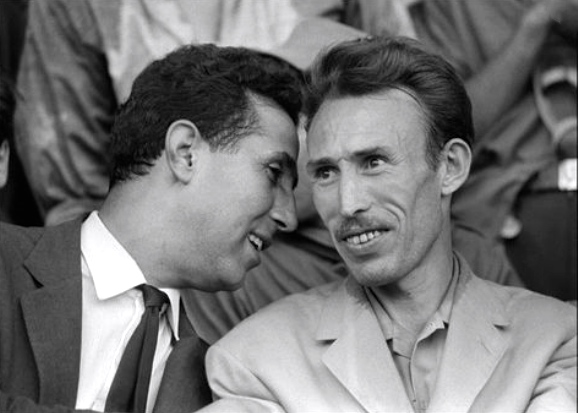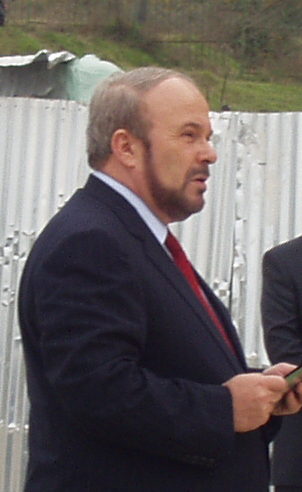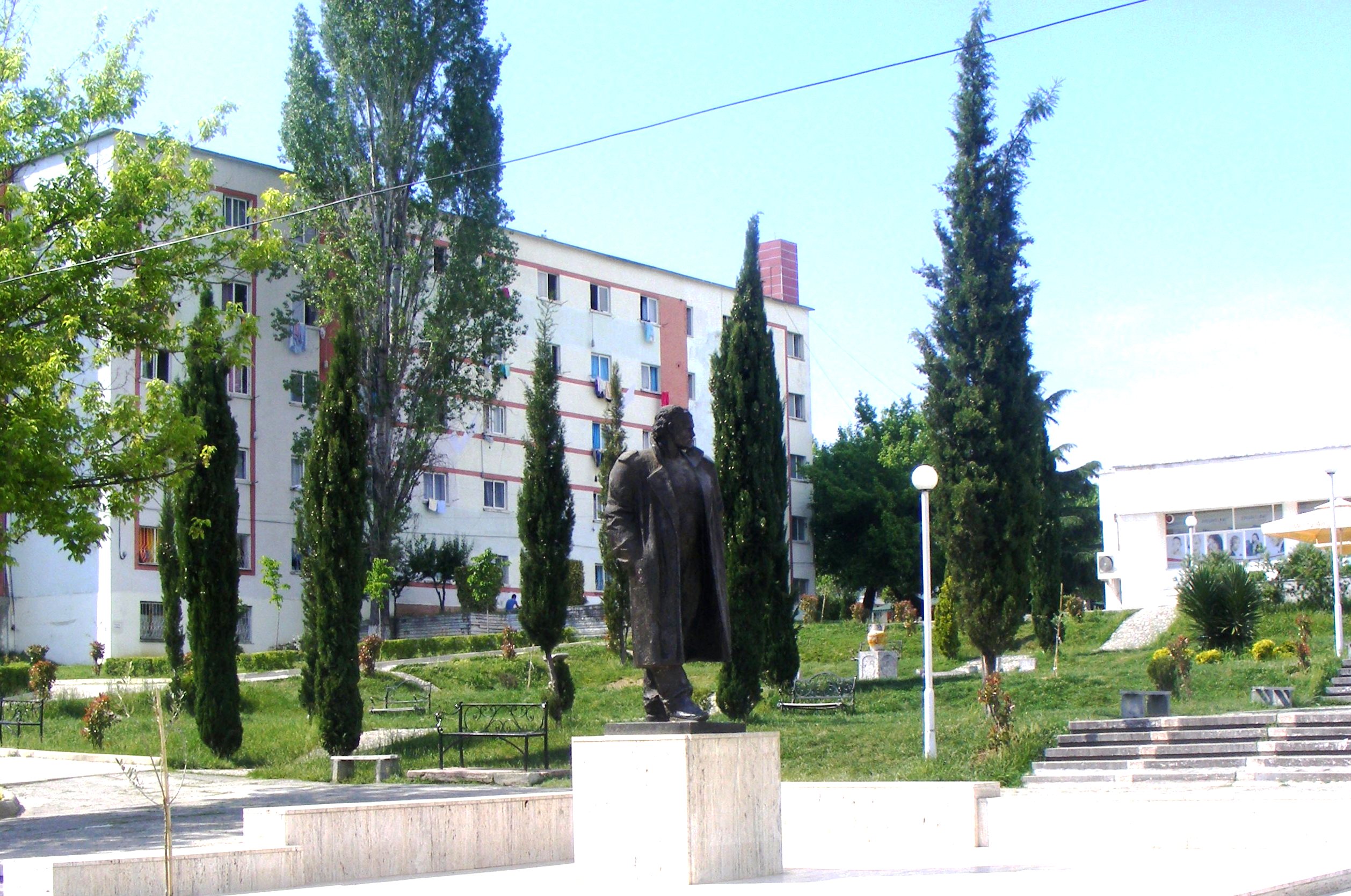|
List Of Coups D'état And Coup Attempts By Country
Coups d'état and coup attempts include: (listed by country, in chronological order) Afghanistan #February 20, 1919: Nasrullah Khan overthrows Habibullah Khan #February 28, 1919: Amanullah Khan overthrows Nasrullah Khan #January 17, 1929: Habibullah Kalakani overthrows Inayatullah Khan #October 16, 1929: Mohammed Nadir Shah overthrows Habibullāh Kalakāni # July 17, 1973: Mohammed Daoud Khan overthrows Mohammed Zahir Shah # December 9, 1976: Qiyam-i Islami ( Islamic Uprising) attempts and fails to overthrow Mohammed Daoud Khan # April 30, 1978: Abdul Qadir overthrows Mohammed Daoud Khan #September 16, 1979: Hafizullah Amin overthrows Nur Muhammad Taraki #Operation Storm-333, December 27, 1979: Babrak Karmal overthrows Hafizullah Amin #1990 Afghan coup attempt, March 6, 1990: Shahnawaz Tanai attempts and fails to overthrow Mohammad Najibullah Albania #September 14, 1998: The funeral of MP Azem Hajdari turns violent as the office of the Albanian Prime Minister of Albania, ... [...More Info...] [...Related Items...] OR: [Wikipedia] [Google] [Baidu] |
Babrak Karmal
Babrak Karmal (Farsi/Pashto: , born Sultan Hussein; 6 January 1929 – 1 or 3 December 1996) was an Afghan revolutionary and politician who was the leader of Afghanistan, serving in the post of General Secretary of the People's Democratic Party of Afghanistan for seven years. Born in Kabul Province into a Tajik family, Karmal attended Kabul University and developed openly leftist views there, having been introduced to Marxism by Mir Akbar Khyber during his imprisonment for activities deemed too radical by the government. He became a founding member of the People's Democratic Party of Afghanistan (PDPA) and eventually became the leader of the Parcham faction when the PDPA split in 1967, with their ideological nemesis being the Khalq faction. Karmal was elected to the Lower House after the 1965 parliamentary election, serving in parliament until losing his seat in the 1969 parliamentary election. Under Karmal's leadership, the Parchamite PDPA participated in Mohammad Daoud Kh ... [...More Info...] [...Related Items...] OR: [Wikipedia] [Google] [Baidu] |
1930 Argentine Coup D'état
The 1930 Argentine coup d'état, also known as the September Revolution by its supporters, involved the overthrow of the Argentine government of Hipólito Yrigoyen by forces loyal to General José Félix Uriburu. The coup took place on 6 September 1930 when Uriburu led a small detachment of troops into the capital, experiencing no substantial opposition and taking control of the Casa Rosada. Large crowds formed in Buenos Aires in support of the coup. Uriburu's forces took control of the capital and arrested Radical Civic Union supporters. There were no casualties in the coup. Uriburu's coup was supported by the '' Nacionalistas''. Uriburu himself was part of the ''Nacionalista'' Argentine Patriotic League and had the support of a number of ''Nacionalista'' military officers. ''Nacionalista'' plans for such a coup had been developing since 1927, when politician Juan Carulla approached Uriburu for support of a coup to entrench an Argentine version of Fascist Italy's Charter of La ... [...More Info...] [...Related Items...] OR: [Wikipedia] [Google] [Baidu] |
1977 Angolan Coup D'état Attempt
The 1977 Angolan coup d'état attempt was a failed attempt by the Angolan interior minister Nito Alves to overthrow the government of Agostinho Neto. It took place on May 27. Background By the late 1970s, Alves had become a powerful member of the government and the People's Movement for the Liberation of Angola (MPLA). He had successfully put down Daniel Chipenda's Eastern Revolt and the Active Revolt during the War of Independence. By 1975, factionalism within the MPLA had become a major challenge to Neto's power and so Neto gave Alves the task of once again clamping down on dissent. Alves shut down the Cabral and Henda Committees and expanded his influence within the MPLA through his control of the nation's newspapers and state-run television. He visited the Soviet Union in October 1976, and may have obtained Soviet support for a ''coup'' against Neto. By the time he returned, Neto had grown suspicious of Alves' growing power and sought to neutralize him and his fo ... [...More Info...] [...Related Items...] OR: [Wikipedia] [Google] [Baidu] |
Chadli Bendjedid
Chadli Bendjedid ( ar, الشاذلي بن جديد; ALA-LC: ''ash-Shādhilī bin Jadīd''; 14 April 1929 – 6 October 2012) was the third President of Algeria and an Algerian Nationalist. His presidential term of office ran from 9 February 1979 to 11 January 1992. A combatant during the Algerian War, he was a member of the Revolutionary Council from 1965 to 1976 and was appointed Colonel in 1969. He was appointed Secretary General of the National Liberation Front (FLN) in January 1979 and was elected president the following month. Bendjedid would win re-elections without competition in 1984 and 1989. He resigned from the presidency in January 1992 following a disputed election and military coup, leading to the Algerian Civil War. He remained under house arrest until 1999 and died of cancer at the age of 83. Career Early life and career Bendjedid was born in Bouteldja on 14 April 1929.''Algeria:Anger of The Dispossessed'', Martin Evans and John Phillips, Yale University ... [...More Info...] [...Related Items...] OR: [Wikipedia] [Google] [Baidu] |
Khaled Nezzar
Major-General Khaled Nezzar ( ar, خالد نزّار; born 25 December 1937) is an Algerian general and former member of the High Council of State of Algeria. He was born in the ''douar'' of Thlet, in Seriana in the Batna region. His father, Rahal Nezzar, was a former non-commissioned officer in the French army who had turned to farming after World War II. His mother died in 1941. Military career After studying in the local native school (''école indigène''), he was transferred to a school for troops' children at Koléa, and then joined the French army, studying at the Strasbourg military school in Algiers where non-commissioned officers were trained. After independence in 1962, he remained in the Algerian army, and started rising through the ranks. He went to Moscow in 1964 to receive military training at the M. V. Frunze Military Academy. Upon his return in 1965, he was named Director of Materiel in the Ministry of National Defense. Soon after Houari Boumedienne's coup, he ... [...More Info...] [...Related Items...] OR: [Wikipedia] [Google] [Baidu] |
Benyoucef Benkhedda
Benyoucef Benkhedda ( ar, بن يوسف بن خدة; February 23, 1920 – February 4, 2003) was an Algerian politician. He headed the third GPRA exile government of the National Liberation Front (FLN), acting as a leader during the Algerian War (1954–62). At the end of the war, he was briefly the de jure leader of the country, however he was quickly sidelined by more conservative figures. Early life Benyoucef Benkhedda was born in 1920 in Berrouaghia, Médéa Province.Fondation Benyoucef Benkhedda Biography The son of a , [...More Info...] [...Related Items...] OR: [Wikipedia] [Google] [Baidu] |
Ahmed Ben Bella
Ahmed Ben Bella ( ar, أحمد بن بلّة '; 25 December 1916 – 11 April 2012) was an Algerian politician, soldier and socialist revolutionary who served as the head of government of Algeria from 27 September 1962 to 15 September 1963 and then the first president of Algeria from 15 September 1963 to 19 June 1965. Youth Ahmed Ben Bella was born in Maghnia, in the former department of Oran, western Algeria, to Moroccan parents from the Arab tribe of Beni Hassan on 25 December 1916, during the height of the French colonial period. Ben Bella was the son of a farmer and small businessman; he had five brothers and two sisters. His oldest brother died from wounds received in the First World War, during which he fought for France. Another brother died from illness and a third disappeared in France in 1940, during the mayhem of the Nazi victory. Ben Bella began his studies in Maghnia, where he went to the French school, and continued them in the city of Tlemcen, where he fir ... [...More Info...] [...Related Items...] OR: [Wikipedia] [Google] [Baidu] |
Houari Boumédiène
Houari Boumédiène ( ar, ; ALA-LC: ''Hawwārī Būmadyan''; born Mohammed Ben Brahim Boukherouba; 23 August 1932 – 27 December 1978) was an Algerian politician and army colonel who served as Chairman of the Revolutionary Council of Algeria from 19 June 1965 until 12 December 1976 and thereafter as the second President of Algeria until his death in 1978. Born in Guelma, he was educated at the Islamic Institute in Constantine. He joined the National Liberation Front in 1955 and adopted the nom de guerre Houari Boumediene. He received the rank of colonel and in 1960 became the commander of the military wing of the FLN. President Ahmed Ben Bella appointed him Minister of Defense in 1961. He did not agree with Ben Bella's reforms, and later overthrew him in a bloodless coup in June 1965. He abolished the constitution and the parliament, and he himself was the leader of the 27-member Revolutionary Council, the new institution that governed the state. The members of the cou ... [...More Info...] [...Related Items...] OR: [Wikipedia] [Google] [Baidu] |
Fatos Nano
Fatos Nano (; born 16 September 1952) is an Albanian socialist politician who served as Prime Minister of Albania The Prime Minister of Albania ( sq, Kryeministri i Shqipërisë), officially styled Prime Minister of the Republic of Albania ( sq, Kryeministri i Republikës së Shqipërisë), is the head of government of the Republic of Albania and the mos ... in 1991, from 1997 to 1998 and from 2002 to 2005. He was the first leader and founder of the Socialist Party of Albania and a member of the Assembly of Albania, Albanian Parliament from 1991 to 1993 and 1997 to 2009. He reformed the anti-revisionist Marxist-Leninist ideology of the Labor Party of Albania into social democracy for its successor, the Socialist Party. During his leadership, the Socialist Party, as a result of reforms, joined the Socialist International and Party of European Socialists. Nano was a candidate in the 2007 Albanian presidential election, 2007 presidential election but did not win. He again tried ... [...More Info...] [...Related Items...] OR: [Wikipedia] [Google] [Baidu] |
Prime Minister Of Albania
The Prime Minister of Albania ( sq, Kryeministri i Shqipërisë), officially styled Prime Minister of the Republic of Albania ( sq, Kryeministri i Republikës së Shqipërisë), is the head of government of the Republic of Albania and the most powerful and influential person in Albanian politics. The prime minister holds the executive power of the nation and represents the Council of Ministers and chairs its meetings. The prime minister is appointed by the president of Albania after each general election and must have the confidence of the Parliament of Albania to stay in office. The Council is responsible for carrying out both foreign and domestic policies. It directs and controls the activities of the ministries and other state organs. The prime minister is elected on the basis of universal suffrage, through a secret ballot, for a four-year term. The Constitution of Albania sets no limit as to office terms of the prime minister. The 33rd and current officeholder is Edi ... [...More Info...] [...Related Items...] OR: [Wikipedia] [Google] [Baidu] |
Azem Hajdari
Azem Shpend Hajdari (, March 11, 1963 – September 12, 1998) was the leader of the student movement in 1990–1991 that led to the fall of communism in Albania. He then became a politician of the Democratic Party of Albania (DP). He symbolizes the start of the democratic era in Albania. He was a member of the Albanian parliament and the Chairman of the Defence Parliamentary Commission. He was assassinated in Tirana on September 12, 1998. On October 2, 1998, Hajdari was posthumously awarded Honorary citizenship of Tirana, and in 2007 he was decorated with the Skanderbeg's Order by president Bamir Topi. A monument honoring Hajdari and Besim Çera was placed on the crime scene where both were killed (). Early life Hajdari came from a working family. He finished elementary school and high school in Bajram Curri. Hajdari studied philosophy at the University of Tirana, and was married to Fatmira Hajdari, with whom he had three children: Kirardi, Rudina, and Azem Junior (who was bo ... [...More Info...] [...Related Items...] OR: [Wikipedia] [Google] [Baidu] |




.jpg)
